Friendship in Old Age: How to Make and Keep Meaningful Bonds
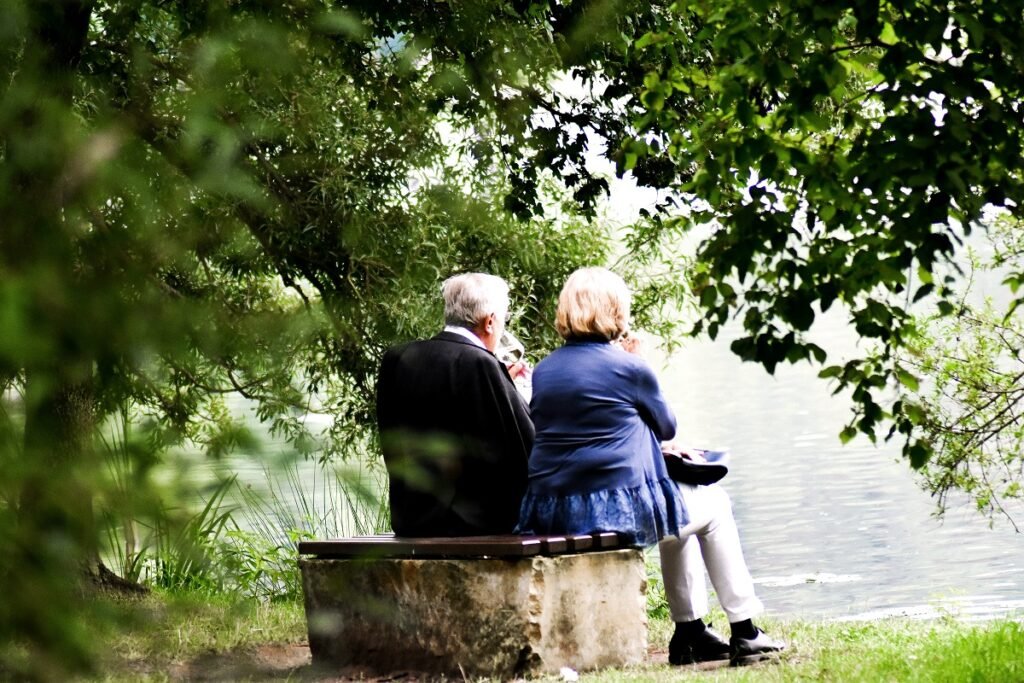
Last Updated on July 7, 2025 by Rose Ann
Friendship can literally be a lifesaver. Just ask Keith Clark, an 85-year-old from Sioux Falls, South Dakota, who discovered this truth during a terrifying moment in 2019. Clark was enjoying his usual morning walk with two close friends, Bill Winness and Ray Smidt, when he suddenly felt dizzy and had to sit down. What happened next proves just how vital our social connections can be.
After Clark waved his friends on, assuring them he’d catch up, a passerby noticed he was having a heart attack. Winness rushed back with an emergency defibrillator, using his CPR training to keep his friend alive until paramedics arrived. Those crucial minutes of life-saving care from a dear friend made all the difference. Clark recovered fully, grateful not just to be alive, but for friends who didn’t just share morning walks—they shared a commitment to being there when it mattered most.

Friendship in Old Age: How to Make and Keep Meaningful Bonds
Stories like Clark’s highlight something many of us take for granted: the profound impact friendships have on our lives. Yet for adults in their retirement years, friendship can feel more like a puzzle than a clear path forward. Friends become harder to find as life circumstances change, and we often give little thought to actively nurturing these relationships.
This tendency to place friendships lower on our priority list—below family, grandchildren, and spouses—might need reconsidering. Recent research published in Epidemiology and Psychiatric Sciences found that friendships in mature adults were associated with better physical health, healthier behaviors, and improved mental health across the board.
“In general, the role of friendship in our lives isn’t terribly well appreciated,” explains Rebecca Adams, a professor of sociology at the University of North Carolina, Greensboro. “There is just scads of stuff on families and marriage, but very little on friendship.”
But researchers are catching up, and what they’re discovering might surprise you.
Friendship in Old Age: The Value of Social Networks
Yet, to many these days, friendship in old age seems more like a puzzle rather than a clear line between life and death. Friends are harder to come by as you age, that’s for sure. But most of us give little more than a passing thought to the quality and character of our friendships in old age.
That may have to do with the shifting value we place on our friendships over time. Depending on how we are feeling at the moment, our friendships can be either significant or irrelevant. The subject pops up occasionally – perhaps when we worry that time, distance, and the limitations imposed by our advancing years have diminished the value of our social networks.
Other than that, friends are at the bottom of the pecking order of our relationships. Grandchildren, children, husbands, wives, siblings, and parents come first. This is not only true of ourselves as seniors, but of science, as well. Researchers have only recently begun to take notice of the connections between friendship in old age and our overall well-being.
“In general, the role of friendship in our lives isn’t terribly well appreciated,” says Rebecca Adams, a professor of sociology at the University of North Carolina, Greensboro. “There is just scads of stuff on families and marriage, but very little on friendship.”
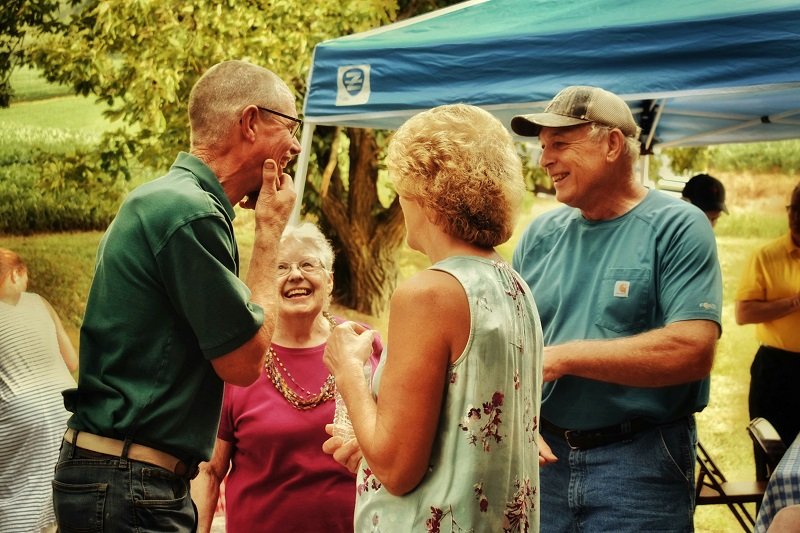
How People Learned to Nurture Friendships
Throughout history, friendship has held a place of honor in human society. Both Confucius and Aristotle spoke reverently of relationships that provide companionship well into later life, particularly as sources of moral guidance and wisdom.
In prehistoric times, close friendships were essential for survival. Obtaining food and water required dangerous group activities like hunting and gathering. Having trusted companions made these endeavors safer and more successful. Early friendships also facilitated mate acquisition and child-rearing, with researchers noting that early humans with strong social bonds were likely better adapted to raising children successfully.
“Friendships are an important class of relationships that evolved in response to the benefits of having additional people beyond family invested in one’s welfare,” says Debra Lieberman, an associate professor of psychology at the University of Miami.
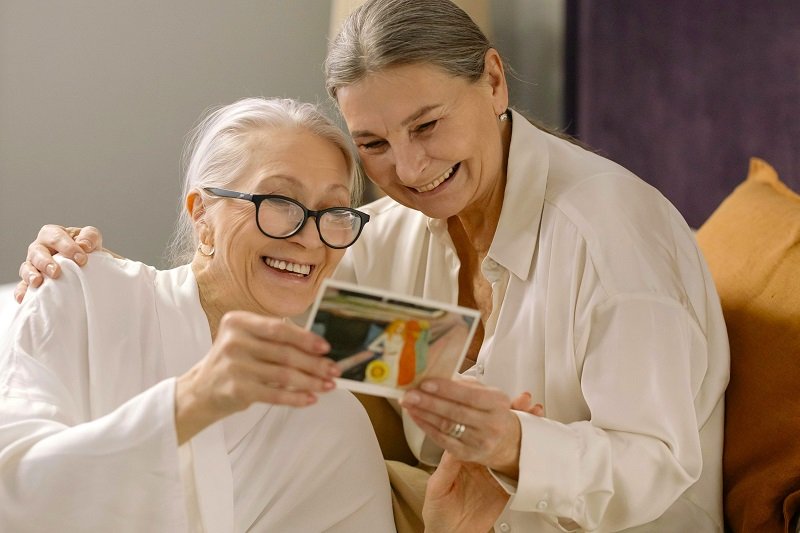
Social Isolation Is a Modern Global Health Threat.
While modern conveniences have made daily survival far easier than it was thousands of years ago, our need for meaningful friendships has only intensified. The World Health Organization made loneliness a global health priority in 2023, launching a new Commission on Social Connection to address what has become an urgent public health crisis.
The commission is co-chaired by U.S. Surgeon General Vivek Murthy and African Union Youth Envoy Chido Mpemba, reflecting the international scope of this challenge. Dr. Murthy has written extensively about loneliness, noting that “it harms both individual and societal health” and “is associated with a greater risk of cardiovascular disease, dementia, stroke, depression, anxiety, and premature death.”
The numbers are sobering. Data from the University of Michigan’s National Poll on Healthy Aging indicates that lonely adults in the US increased from 27 percent in 2018 to 34 percent in 2023. Nearly half of Americans report losing touch with at least one friend during the pandemic, according to a 2021 poll by the American Enterprise Institute.
This isn’t uniquely an American challenge. Before the pandemic, many adults in Australia reported feeling lonely, especially during morning and evening hours. “Australia is an aging society, and loneliness and social isolation have always been real-life issues for mature adults,” says Judy Lowthian, a principal research fellow at Bolton-Clarke, a non-profit aged care organization in Australia.
The pandemic made things worse, disrupting regular coping strategies like volunteering, community activities, and social clubs. “You must understand that, for me, lonely is the norm,” shared one Australian participant in a University of Monash study. “Pre-COVID, I would get some respite by going out on activities, but the lockdown killed all of them.”
Today, loneliness is a daily experience for one in five adults in Australia, with rates even higher among those in aged care facilities. “You get teary for the want of human company,” admitted one woman interviewed by researchers.
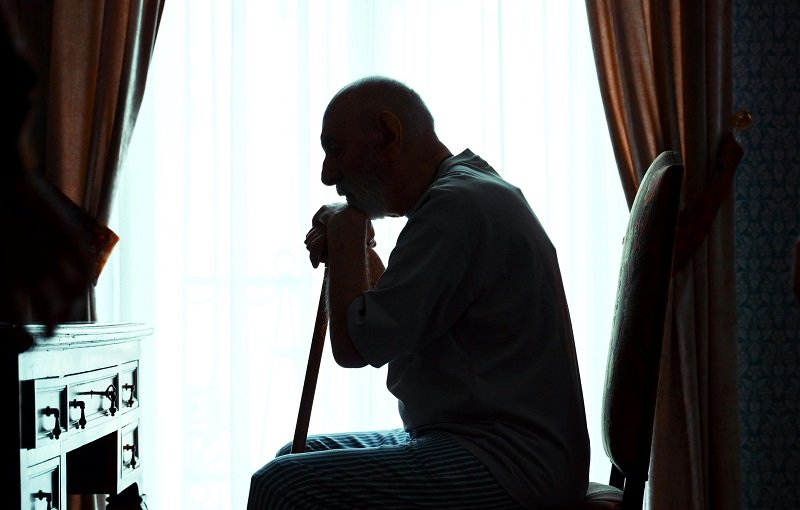
Loneliness in an Aging Society
Widespread social isolation among seniors is by no means an entirely American phenomenon. Before the pandemic, many older Australians reported feeling lonely, especially in the morning or evening.
“Australia is an ageing society, and loneliness and social isolation have always been real-life issues for older people,” says Judy Lowthian, a principal research fellow at Bolton-Clarke, a non-profit aged care organization in Australia.
But things began to take a turn for the worse for Australian seniors when COVID-19 gained a foothold on the continent in 2020.
On top of the isolation of lockdown, the restrictions upset the regular coping strategies of countless Australian seniors, including volunteering, engaging in community activities, and keeping themselves active in social clubs.
“You must understand that, for me, lonely is the norm,” says one Australian senior interviewed by researchers from the University of Monash. “Pre-COVID, I would get some respite by going out on activities, but the lockdown killed all of them.”
Nowadays, loneliness is a daily experience for one in five older Australians, according to the non-profit Aged Care Research and Industry Innovation Australia. This proportion rises among older people living in aged care facilities. The seniors that the researchers interviewed for their study spoke openly about how devastating loneliness can be in older people. “You get teary for the want of human company,” one senior Australian woman admitted.
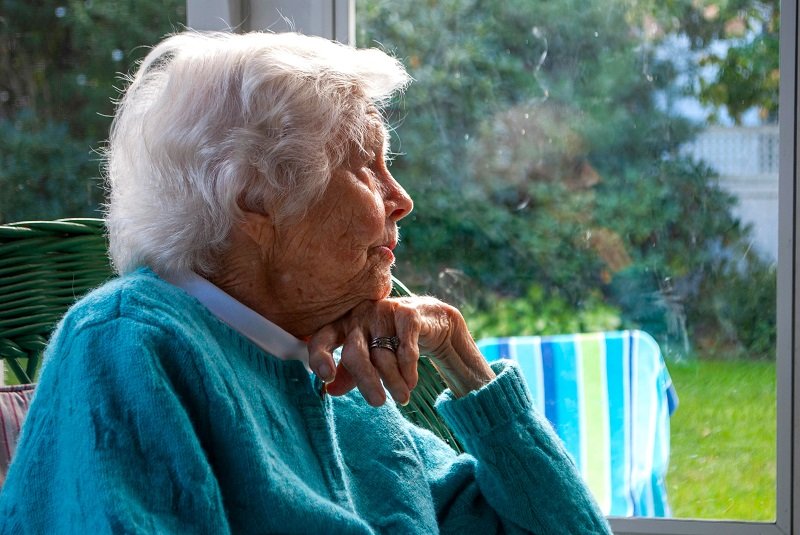
Friendships Are Even Better than Diet and Exercise, say Experts!
Here’s where the research gets truly remarkable. A Harvard study revealed that among initially healthy people followed over time, loneliness was associated with a 26% increase in the risk of premature death, social isolation with a 29% increase, and living alone with a 32% escalation in mortality risk.
On the flip side, researchers from Flinders University in Australia published findings showing that adults who maintain more friendships are 22 per cent less likely to die within a 10-year period than those with fewer friends. In Sweden, a six-year study of middle-aged men found that having more friends reduced the risk of heart attack or fatal coronary heart disease more effectively than having a life partner.
“We need an entire community to feel whole,” says Marisa Franco, an author and professor of psychology at the University of Maryland. “Being around different people brings out different sides of our own identity.”
Scientists suggest several theories about why friendship benefits health so dramatically. Friends help us cope with stress and anxiety, both of which can be detrimental to physical health. Research shows that people who are socially isolated produce more cortisol throughout the day, which has been associated with cardiovascular disease and higher overall mortality risk.
In fascinating studies, researchers found that people standing next to a friend rated climbing a steep hill as less challenging than those who were alone. In another experiment, healthy volunteers given nose drops containing a cold virus were less likely to develop symptoms if they had stronger social ties.
These findings have made encouraging friendships a priority for government policymakers and care facilities worldwide.
4 Tips to Help You Keep Old Friends and Make New Ones
Creating and maintaining friendships in your retirement years requires more intentional effort than it did when you were younger. Your social circle naturally shrinks as friends move, face health challenges, or pass away. You might find yourself attending more funerals, struggling with energy for socializing, or dealing with major life changes like becoming an empty nester, divorce, or widowhood.
But don’t let these challenges discourage you. Below are four research-backed strategies to help you build meaningful connections:
Let Your Interests Guide You
Think back to how you met your closest friends throughout your life. Did you volunteer for a cause you cared about? Take a class? Join a sports team?
“Friendships are always about something,” says William K. Rawlins, a communications scholar and recognized expert on modern friendships. “Common passions help people bond at a personal level, and they bridge people of different ages and life experiences.”
Whatever sparks your curiosity, someone else shares that interest. Use your passions as a compass toward potential friendships:
- If you love gardening, join community gardening events or local garden clubs
- If you enjoy reading, find a nearby book club or start one
- If you’re interested in history, volunteer at museums or historical societies
- If you want to stay active, join walking groups, tennis clubs, or fitness classes
- If you enjoy crafts, participate in quilting circles, woodworking clubs, or art classes
Community centers, libraries, religious organizations, and neighborhood associations offer excellent opportunities to meet like-minded people while engaging in activities you genuinely enjoy.

Take the Initiative.
Making and maintaining friendships requires being proactive. Most experts agree that waiting for others to reach out is a recipe for loneliness.
“You don’t need to wait for anyone to reach out to you and take the first step,” says Amber O’Brien, a psychologist with the Mango Clinic in Miami. “Instead, become the kind initiator, even if you’re an introvert.”
Franco suggests assuming that people like you—because they probably do. “People like you more than you think,” she explains. “I know it’s scary to reach out but it’s likely to end more positively than your brain is assuming.”
Start small with a simple text message. Look through your phone contacts and reach out to someone you’ve been meaning to reconnect with, or send a friendly message to a new acquaintance you’d like to know better. A simple “I was thinking about you and wondering how you’ve been” can open doors to renewed or deepened friendships.
Express Your Appreciation.
When someone reaches out to you—whether for coffee, lunch, or just a chat—let them know how much you appreciate the gesture. This might seem obvious, but research shows it’s crucial for building strong connections.
Researchers from the University of Utah tracked college freshmen’s interactions with new acquaintances over three months. They found that close friendships were much more likely to form when people openly expressed affection and appreciation for each other’s efforts to connect.
“When we don’t express affection, we are at risk of losing the friendship itself,” Franco warns.
Don’t assume people know you value their friendship. Tell them directly: “I’m so glad you called,” or “It really means a lot to me that you thought to invite me.” These simple acknowledgments strengthen the bond and encourage future connections.
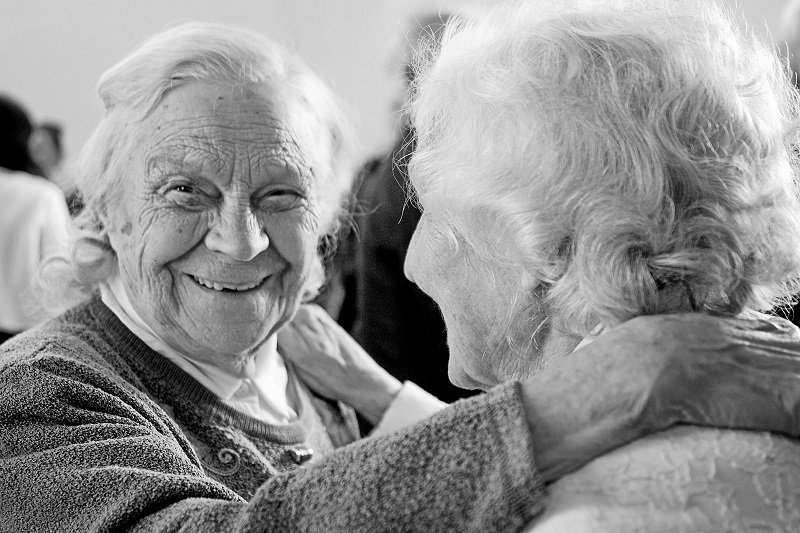
Invite a Friend to a Planned Activity.
If you struggle to find extra time for socializing, consider inviting friends to join activities already on your schedule. This strategy makes friendship-building feel less overwhelming while enriching activities you’re already doing.
For example:
- Invite someone to join your gym workout or morning walk
- Ask a friend to accompany you to the grocery store and grab lunch afterward
- Suggest meeting for coffee before your doctor’s appointment
- Invite someone to join you at a concert, lecture, or community event you were planning to attend anyway
“You do have to put yourself out there,” says Janice McCabe, associate professor of sociology at Dartmouth College and friendship researcher. “There’s a chance that the person will say no. But there’s also the chance they’ll say yes, and something really great could happen.”
Remember that nurturing friendships takes time, and not every attempt will lead to a deep connection. Some new acquaintances might not want to invest the effort required for true friendship. Don’t let occasional disappointments discourage you—one genuine friend is worth many unsuccessful attempts.
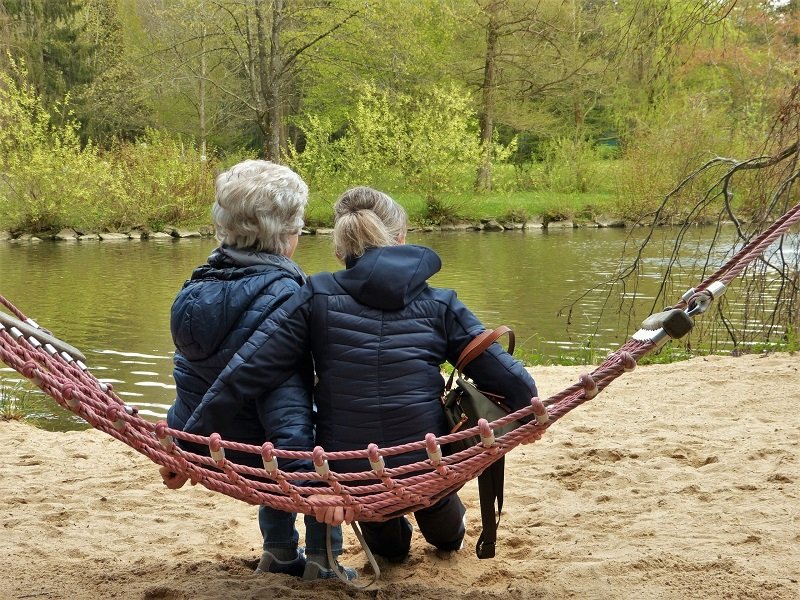
Good Friends Are Worth the Work and Commitment.
Friendship, like other valuable aspects of life, requires care and maintenance to flourish. This might surprise those who have become complacent about their social connections over the years. But the effort invested in building and maintaining friendships pays dividends that extend far beyond companionship.
Our friendships serve as small vignettes about who we are, how we’ve grown, and what we value most. “Tell me who your friends are and I’ll tell you who you are,” goes the familiar saying, suggesting that our social connections—especially during our retirement years—reflect our character and priorities.
We celebrate many occasions throughout life, but most focus on romantic and familial relationships—weddings, anniversaries, family reunions. Why don’t we celebrate our friendships with the same enthusiasm? Perhaps it’s because the age of social media has made it too easy to maintain superficial connections with minimal effort.
But without investing in face-to-face time and putting genuine care into our friendships beyond a few emojis and “likes,” we miss opportunities to foster the deeper connections that research shows make our lives more meaningful, happier, and healthier.
Your friendships during your retirement years can be some of the most rewarding relationships of your life. You have the wisdom of experience, often more time to invest in relationships, and the freedom to choose companions based purely on shared interests and mutual affection rather than work obligations or convenience.
Do you have meaningful friendships that enrich your retirement years? Are you ready to reach out to an friend you haven’t spoken with in a while, or take steps to meet new people who share your interests? We’d love to hear about your experiences with friendship—the challenges you’ve faced and the connections that have brought joy to your life. Share your thoughts in the comments below!
Frequently Asked Questions About Friendship in Later Life
- Is it normal to lose friends as I get into my retirement years?
- Yes, it’s completely normal for your social circle to change during this life stage. Friends may move to different locations, face health challenges, or pass away. Additionally, major life transitions like retirement, becoming an empty nester, or losing a spouse can affect existing friendships. The key is recognizing this as a natural part of life while actively working to maintain existing connections and create new ones.
- How many close friends do I really need for good health?
- Quality matters more than quantity when it comes to friendship and health benefits. Research suggests that even having just one or two close, supportive friends can significantly impact your well-being. The goal isn’t to have a large social network, but rather to cultivate meaningful relationships where you feel understood, valued, and cared for.
- I’m naturally introverted. How can I make new friends without feeling overwhelmed?
- Being introverted doesn’t mean you can’t form deep friendships—in fact, introverts often excel at creating meaningful one-on-one connections. Start small by joining activities related to your genuine interests, where conversation flows naturally around shared passions. Focus on quality interactions over quantity, and remember that many introverts prefer smaller gatherings or one-on-one meetings, which can lead to stronger bonds.
- What if I’ve been out of touch with friends for years? Is it too late to reconnect?
- It’s never too late to reconnect with former friends. Many people are delighted to hear from someone from their past. Start with a simple message expressing that you’ve been thinking about them and wondering how they’re doing. Don’t overthink it—most people understand that life gets busy and are often happy to reestablish contact, especially during retirement years when schedules may be more flexible.
- How do I handle friendships when health issues become a factor?
- Health challenges are a reality for many people during their later years, but they don’t have to end friendships. Be honest about your limitations while focusing on what you can do rather than what you can’t. Consider adapting activities—if walking becomes difficult, suggest meeting for coffee instead. True friends will appreciate your honesty and help find ways to maintain the connection that work for everyone.
- Should I maintain friendships that feel one-sided or draining?
- Healthy friendships involve mutual support and reciprocity, though the balance may shift temporarily during difficult times. If a friendship consistently feels draining or one-sided despite your efforts to address the imbalance, it may be healthier to limit the relationship or let it fade naturally. Focus your energy on relationships that bring mutual joy and support.
- How can technology help me maintain friendships?
- Technology can be a wonderful tool for staying connected, especially with friends who live far away or have mobility limitations. Video calls, messaging apps, and social media can help you maintain regular contact between in-person visits. However, research shows that face-to-face interaction provides unique health benefits, so try to balance digital communication with in-person meetings when possible.
References
- World Health Organization. “WHO launches commission to foster social connection.” November 15, 2023. https://www.who.int/news/item/15-11-2023-who-launches-commission-to-foster-social-connection
- Harvard T.H. Chan School of Public Health. “From Loneliness to Social Connection: Lessons from research and a global pandemic.” January 9, 2025. https://hsph.harvard.edu/health-happiness/news/from-loneliness-to-social-connection-lessons-from-research-and-a-global-pandemic/
- NPR Health Shots. “Friends can boost your health, longevity — and share vices too.” November 20, 2023. https://www.npr.org/sections/health-shots/2023/11/20/1214189630/close-friends-can-help-you-live-longer-but-they-can-spread-some-bad-habits-too
- The Washington Post. “In-person friendships are better for health than virtual connections.” May 31, 2024. https://www.washingtonpost.com/wellness/2024/05/28/in-person-friendships-health-benefits/
- Centers for Disease Control and Prevention. “Social Connection.” May 22, 2024. https://www.cdc.gov/social-connectedness/about/index.html
- Mayo Clinic. “Friendships: Enrich your life and improve your health.” October 15, 2024. https://www.mayoclinic.org/healthy-lifestyle/adult-health/in-depth/friendships/art-20044860





